Disclosure: This article contains affiliate links. We may earn a commission from purchases at no extra cost to you, which helps our travel content.
There's something poetic about second acts—both in theater and in life. At 58, trading my corporate marketing desk in Charlotte for a theater intern's notepad in Bakersfield wasn't enough of a plot twist. I needed to see how drama unfolds across different stages worldwide. This quest led me to Nouadhibou, Mauritania's second-largest city and primary port, where the Atlantic kisses the edge of the Sahara. This isn't your typical tourist destination—it's raw, unfiltered, and gloriously authentic. For a week last fall, I immersed myself in this maritime hub where fishing trawlers, iron ore trains, and desert nomads converge in a cultural choreography unlike anything I've experienced. If you're a solo traveler with an appetite for the road less traveled, let me pull back the curtain on Nouadhibou's local secrets, budget hacks, and essential survival tips that no guidebook will tell you.
Navigating Nouadhibou's Cultural Landscape
Arriving in Nouadhibou feels like stepping onto an unscripted stage where multiple narratives unfold simultaneously. The city doesn't reveal itself immediately—it requires patience, respect, and a willingness to listen before you speak.
My first lesson came within hours of arrival when I attempted to photograph the colorful fishing boats at the port. A gentle hand on my shoulder and a warm but firm 'La, la' (no, no) from an elderly fisherman reminded me that permissions here are earned through conversation, not assumed. After introducing myself in my elementary French and explaining my theater background, his expression transformed. 'Ah, you tell stories too,' he nodded approvingly before inviting me to photograph not just his boat but to join his family for tea later that day.
Nouadhibou operates on what locals call 'desert time'—a fluid concept where appointments are suggestions and meaningful encounters take precedence over schedules. Embrace this rhythm rather than fighting it. When I missed the shared taxi to Cap Blanc because I was engrossed in conversation with a local artisan, I discovered a more scenic route by fishing boat that no tourist brochure mentioned.
The city's religious fabric is conservative but not oppressive for respectful visitors. As a male traveler, I found people remarkably welcoming once they understood I was genuinely interested in their culture. Women travelers should pack a lightweight head scarf as a versatile accessory for both sun protection and cultural sensitivity when visiting religious sites or traditional homes.
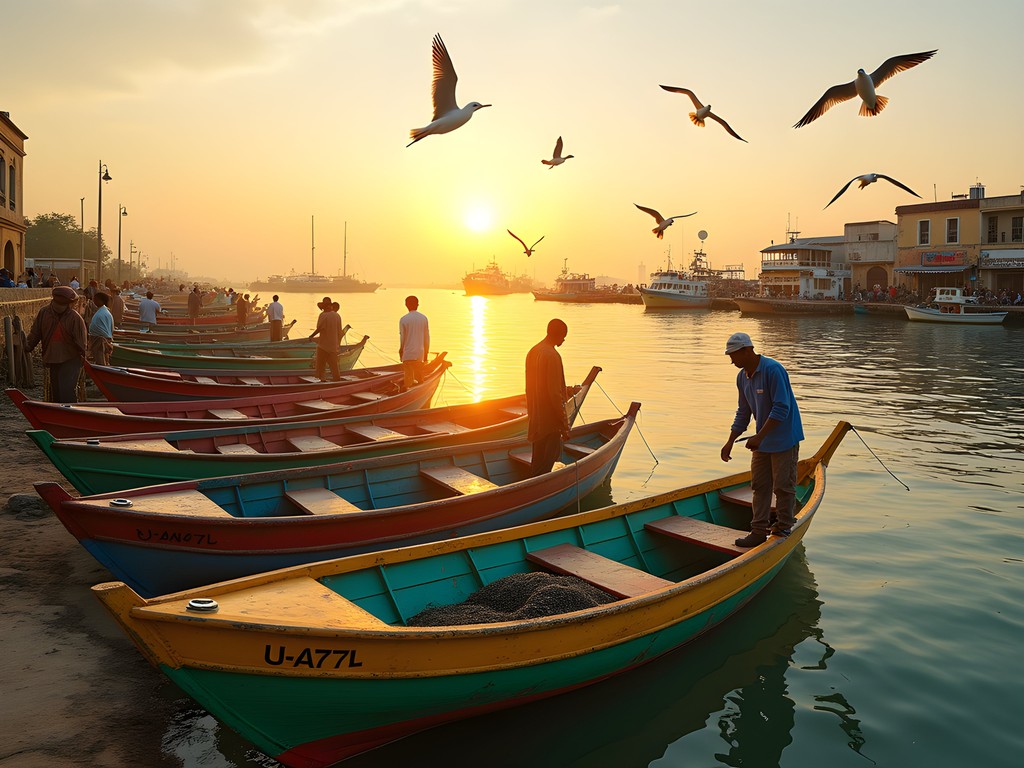
💡 Pro Tips
- Learn basic Arabic greetings and French phrases—both are widely appreciated and open many doors
- Always ask permission before photographing people or religious buildings
- Respect prayer times (especially Friday afternoon) by avoiding business transactions or loud activities
Accommodation Secrets: Where Theater People Stay
Finding affordable yet comfortable accommodation in Nouadhibou requires insider knowledge that won't appear on major booking sites. My theater connections led me to Maison des Artistes, a modest guesthouse run by a former Mauritanian actor who returned from Paris to establish a cultural center. For just 12,000 ouguiya (about $30) per night, I secured a clean room with breakfast and—more valuably—instant connections to the city's small but passionate arts community.
For those without such serendipitous connections, Auberge Sahara near the city center offers basic but clean rooms with shared bathrooms starting at 8,000 ouguiya. What it lacks in amenities, it makes up for in location and the owner's encyclopedic knowledge of the region. Mention an interest in cultural experiences, and Ibrahim might invite you to a family wedding or local music gathering that transforms your understanding of Mauritanian hospitality.
If you're on a tight budget but crave more privacy than hostels provide, consider the packable sleeping bag liner that served as my security blanket in less pristine accommodations. It packs down small but provides a clean barrier between you and questionable bedding.
My most memorable accommodation came through pure theater networking: after chatting with a French expatriate at a local café about my previous life in marketing and current theater aspirations, I was offered his guest room for three nights while he traveled to Nouakchott. These organic connections happen frequently in Nouadhibou if you're open to conversation and share your own story authentically.
One crucial accommodation tip: confirm electricity availability before booking. Power outages are common, and while most guesthouses have generators, they typically run them only during specific evening hours. I learned to charge my devices opportunistically and always kept my headlamp accessible for unexpected blackouts during evening journal writing sessions.
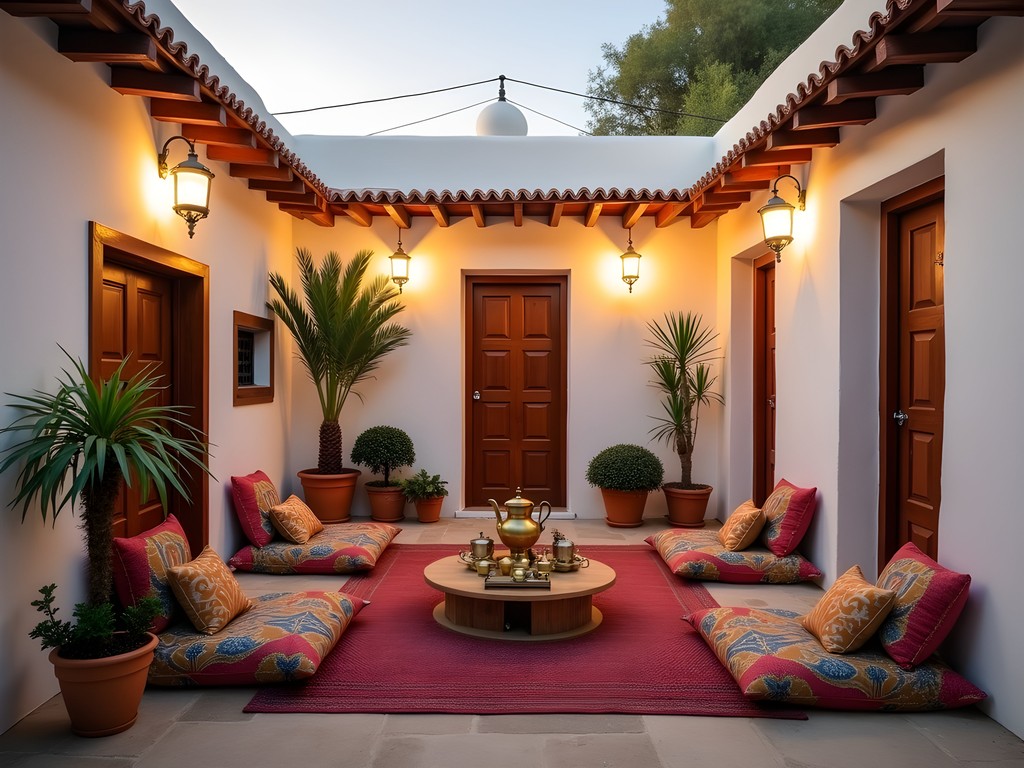
💡 Pro Tips
- Ask about generator hours before booking accommodations
- Negotiate weekly rates for stays longer than three days—discounts of 20-30% are common
- Bring your own padlock for rooms that don't provide secure storage
The Theatrical Feast: Food Adventures on a Budget
Nouadhibou's food scene is a performance of flavors where the Atlantic's bounty meets desert traditions. As a budget traveler with a penchant for local experiences, I quickly learned that the most memorable meals happen where tourists rarely venture.
The Port Fish Market became my morning ritual—not just for the spectacle of the catch being unloaded but for the impromptu breakfast opportunity. For 200 ouguiya (about 50 cents), fishermen will grill your choice of just-caught fish on makeshift barrel fires. Add a handful of bread from a nearby bakery and you've assembled the freshest breakfast in West Africa for under $1. The trick is arriving before 7 AM when the boats return and engaging with the fishermen directly rather than through middlemen.
For lunch, I discovered that the small restaurants serving port workers offer the best value and authenticity. Restaurant Bab El Bahr near the commercial harbor serves massive portions of thieboudienne (Mauritania's fish and rice dish) for 800 ouguiya. The plastic chairs and formica tables might not impress, but the flavors—and the theatrical banter between the cook and customers—create an unforgettable dining experience.
Street food requires both caution and courage. After a bout of digestive drama my second day (a humbling experience involving my hotel bathroom and fervent promises to any deity listening), I developed a strategy: watch where local workers eat, observe the vendor's handwashing practices, and stick to thoroughly cooked items. The grilled meat skewers near the taxi stand passed all tests and became my go-to protein source at just 100 ouguiya each.
Perhaps my greatest food discovery came through Ahmed, a fellow theater enthusiast who invited me to his family's weekly couscous tradition. What followed was a masterclass in Mauritanian hospitality—a communal meal eaten from a shared plate, where conversation flowed as freely as the mint tea. When I attempted to reciprocate by inviting Ahmed to a restaurant, he politely declined, explaining that true hospitality cannot be purchased—it must be exchanged from heart to heart.
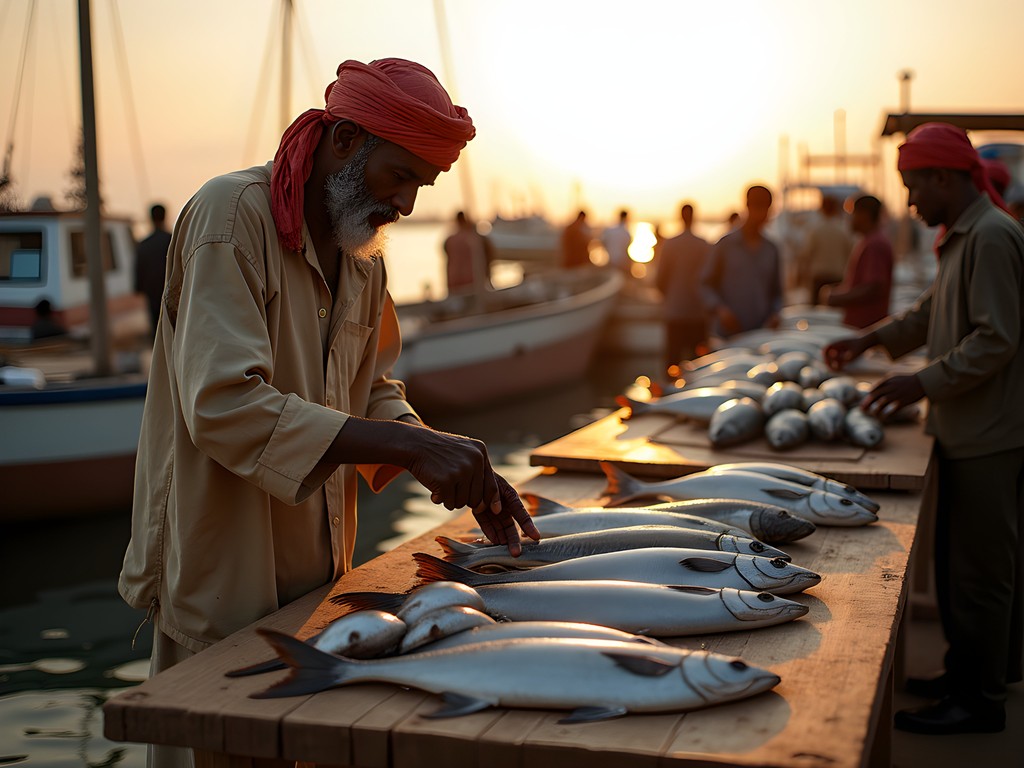
💡 Pro Tips
- Bring a small food container to pack leftovers—portions are generous and nothing goes to waste here
- Learn the phrase 'bidoun sukkar' (without sugar) if you prefer your mint tea less sweet than the traditional syrupy version
- Always eat with your right hand when sharing communal dishes
Beyond the Guidebook: Nouadhibou's Hidden Stages
The true Nouadhibou reveals itself in spaces no travel website will direct you toward—the living stages where everyday life unfolds with all its authentic drama and unexpected beauty.
Case in point: the iron ore train. While tourists occasionally brave the overnight journey from Nouadhibou to Zouérat atop ore cars (a dusty, uncomfortable experience I'm too old to romanticize), few discover the train yard's morning theater. Arriving at 5 AM with a thermos of coffee, I watched engineers and workers prepare the world's longest train for departure. After several mornings of respectful observation, Moussa, a veteran engineer, invited me into the control cabin where he explained the complex logistics while sharing stories of 30 years traversing the desert. Like me, he had reinvented himself mid-life, trading fishing for railroading at age 40.
The Cap Blanc Peninsula offers another hidden experience. While visitors come for the monk seal reserve (worth seeing despite unpredictable seal appearances), few venture to the abandoned Spanish lighthouse. The 2-kilometer walk beyond the official reserve entrance leads to this haunting structure where I spent a solitary afternoon watching fishing boats navigate the peninsula's treacherous waters. The caretaker, an elderly man named Mahmoud, appeared as I was leaving and, seeing my interest, unlocked rooms normally closed to visitors, revealing a small museum of maritime artifacts and hand-drawn maps.
Perhaps my most treasured discovery was the Thursday evening poetry gatherings at Café Nouadhibou. What looks like a standard coffee shop transforms weekly when local intellectuals, from university professors to fishermen, share traditional Hassaniya poetry and debate contemporary issues. Though most performances were in Arabic or French, the universal language of passionate delivery transcended my linguistic limitations. When I mentioned my theater background, I was immediately pressed into service, reciting Shakespeare's sonnet 29 to a surprisingly appreciative audience who then insisted on teaching me a Mauritanian poem in return.
For photography enthusiasts, bring a compact zoom lens to capture both the intimate street scenes and the vast desert-meets-sea landscapes that make Nouadhibou visually compelling without drawing undue attention with oversized equipment.

💡 Pro Tips
- Visit the train yard at dawn (5-6 AM) for the best chance of meeting workers and witnessing preparations
- Hire a local guide for the Cap Blanc Peninsula—the trails are unmarked and easy to lose
- Learn a poem or story from your own culture to share at gatherings—cultural exchange is valued more than perfect language skills
Cultural Connections: Finding Your Theatrical Tribe
As a 58-year-old theater intern who pivoted careers late in life, I've developed a knack for finding kindred creative spirits wherever I travel. Nouadhibou, despite its industrial reputation, harbors a small but vibrant artistic community if you know where to look.
My first connection came through Centre Culturel Français, where a modest library hosts occasional film screenings and art exhibitions. While browsing their small collection of French plays, I met Hamidou, a local teacher with dreams of establishing Nouadhibou's first community theater. Our shared passion transcended our age difference (he's 26) and linguistic challenges. By week's end, we were improvising bilingual scenes for his delighted English students, proving that theatrical communication needs no translation.
The Maison des Jeunes (Youth Center) near the central market hosts weekend music performances where traditional instruments meet modern influences. What began as my casual observation turned into an impromptu cultural exchange when the band leader invited me to share American theater songs. My rendition of 'Ol' Man River' from Showboat—rusty but heartfelt—earned appreciative nods from elders and curious questions from youth about African American theatrical traditions.
My most unexpected connection came through Mohamed, a Nouadhibou fisherman who moonlights as a traditional griot (storyteller). Learning of my theater background, he insisted I accompany him to a family celebration where he was performing. For three mesmerizing hours, I witnessed the original form of theater—stories passed through generations, combining history, mythology, and social commentary with musical accompaniment. Though I understood little of the Hassaniya Arabic, the performance techniques were instantly recognizable to my theater-trained eye.
For cultural immersion, I found my pocket audio recorder invaluable for capturing musical performances (with permission) and practicing language exchanges. These recordings became both souvenirs and learning tools as I replayed conversations to improve my rudimentary French and Arabic phrases.
The key to cultural connection in Nouadhibou isn't finding people exactly like yourself—it's recognizing the universal human impulse for creative expression and approaching differences with genuine curiosity rather than judgment.
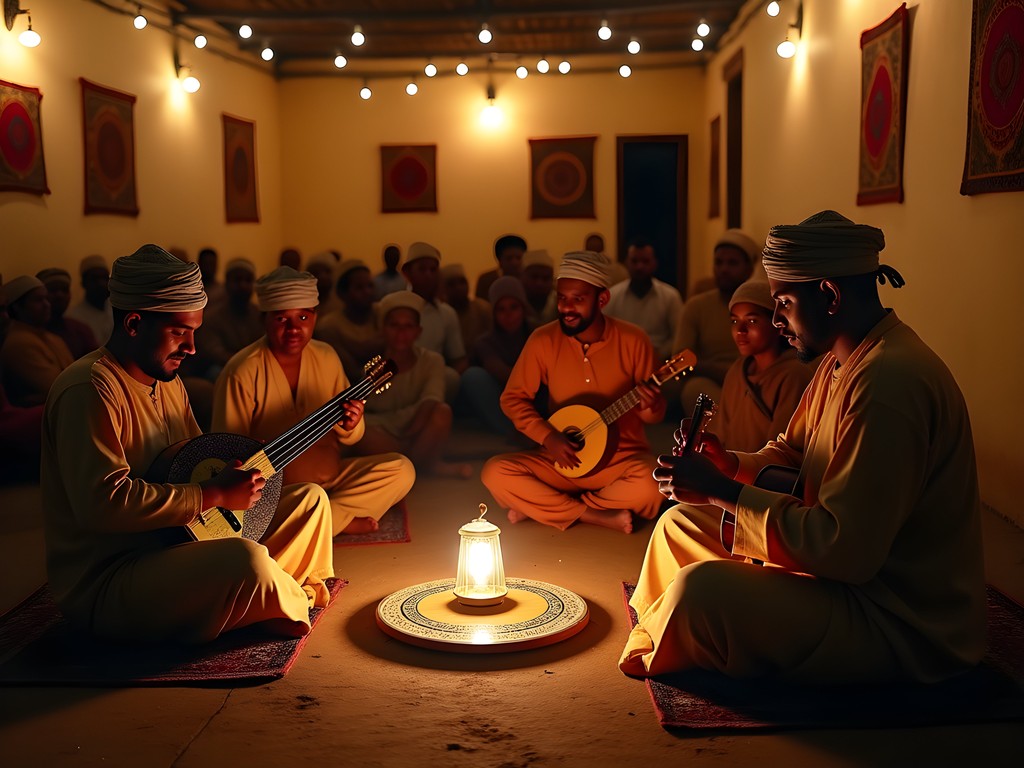
💡 Pro Tips
- Visit Centre Culturel Français on Tuesday afternoons when local artists gather informally
- Bring small gifts related to your cultural background to share—I distributed theater programs from American productions
- Be prepared to perform or share something from your own cultural tradition—reciprocity is highly valued
Final Thoughts
Nouadhibou won't coddle you with tourist infrastructure or Instagram-perfect settings. Instead, it offers something far more valuable—an authentic stage where life unfolds without pretense, where industrial grit meets cultural richness, and where a 58-year-old theater intern can find unexpected parallels to his own late-in-life reinvention. As I boarded the departing iron ore train (yes, I finally braved the passenger car, not the ore containers), I realized that Nouadhibou had given me fresh perspective on my own second act. If this weathered port city could balance its industrial present with its cultural heritage, perhaps my transition from corporate marketer to theater artist wasn't so radical after all. We're all just improvising our roles on the stages life presents us. Whether you're seeking adventure, cultural immersion, or perhaps your own mid-life revelation, Nouadhibou's unvarnished reality offers a refreshingly authentic performance. The only price of admission is your willingness to step off the tourist trail and embrace the beautiful chaos of one of West Africa's most overlooked destinations.
✨ Key Takeaways
- Nouadhibou rewards patience and cultural respect with authentic experiences unavailable to conventional tourists
- Budget travel here isn't just economical—it's the gateway to genuine local connections
- The city's industrial exterior conceals rich cultural traditions and unexpected artistic communities
- Being open about your own story and passions creates reciprocal exchanges that transcend tourist-local dynamics
📋 Practical Information
Best Time to Visit
October-December (fall) or February-April (spring) for milder temperatures
Budget Estimate
$30-50/day including accommodation, food, and local transportation
Recommended Duration
5-7 days minimum to develop local connections
Difficulty Level
Challenging
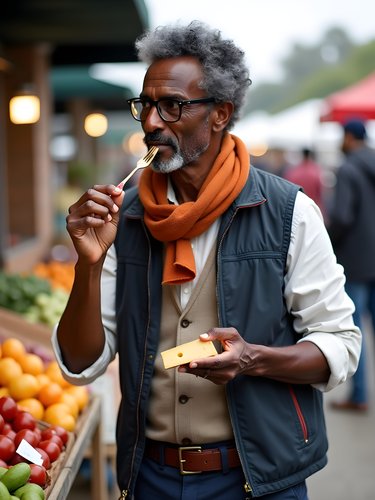
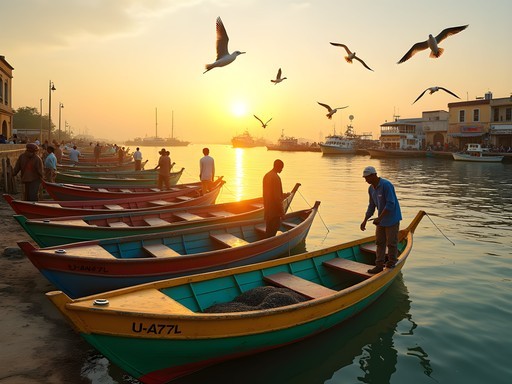
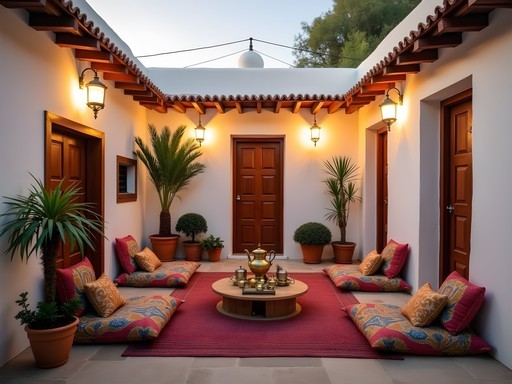
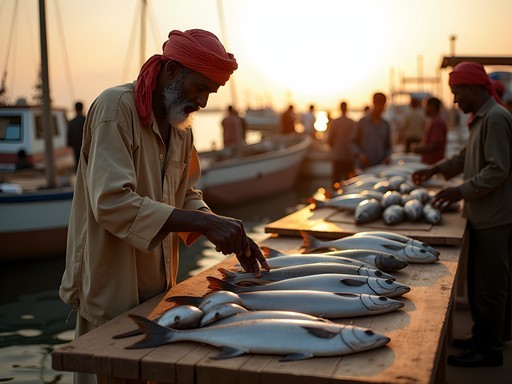

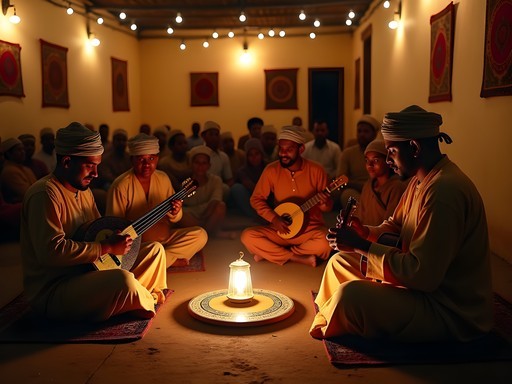


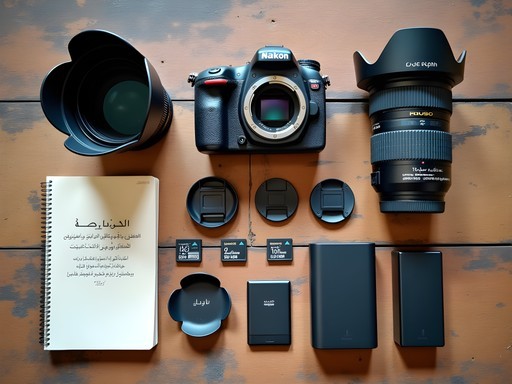
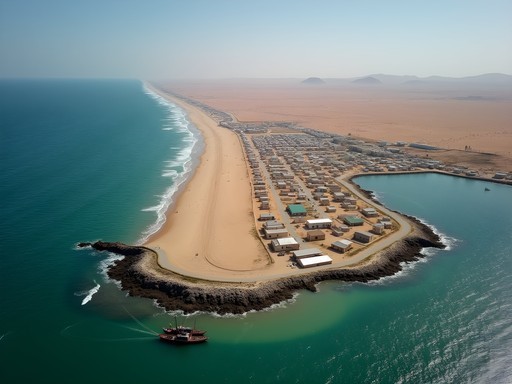
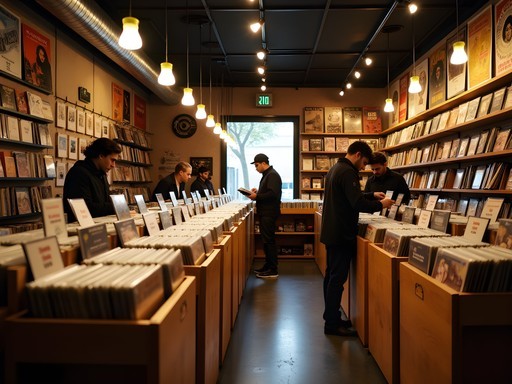
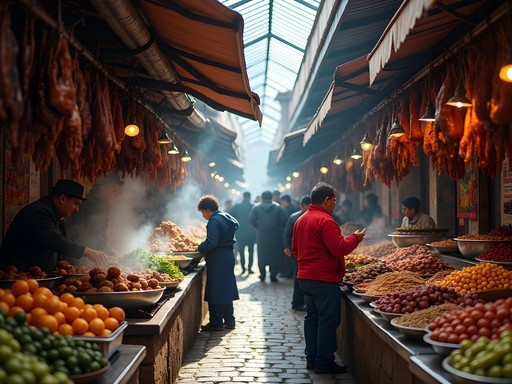
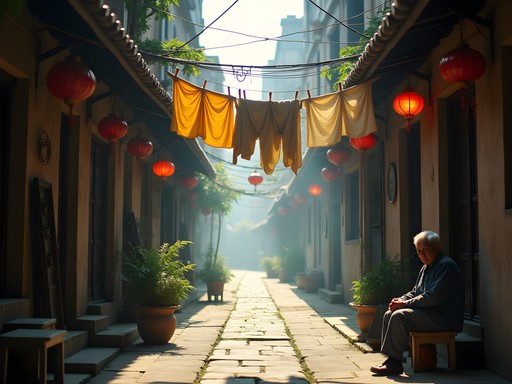

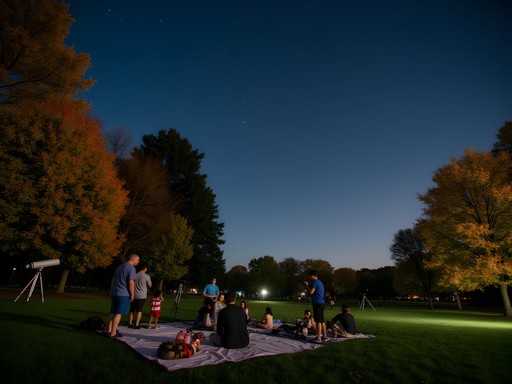

Comments
photoclimber
Love this perspective!
mountainmood
Love this! Not enough people write about Mauritania.
moonlover
Going in April - any tips on the accommodation you mentioned? The 'where theater people stay' part was vague lol
Aiden Jackson
Ha! Fair point. I stayed at a guesthouse run by a French expat near the port - basic but clean. Ask around at the taxi stand when you arrive, drivers know all the spots. Avoid the 'hotels' near the train cemetery unless you're desperate.
moonlover
Perfect, thanks! Exactly what I needed
Fatima Sims
Aiden, I absolutely love this perspective on Nouadhibou! The theater lens is so unique. I passed through there in 2024 on my way to Senegal and completely agree about the authenticity factor. The ship graveyard at sunset was haunting in the best way possible. One tip I'd add: the shared taxis to the border are an adventure in themselves - negotiate the price beforehand and bring snacks for the wait. Also, learning just a few phrases in Hassaniya Arabic opened so many doors with locals. It's not a place that gives itself easily, but that's exactly what makes it special.
mountainmood
The ship graveyard is incredible! Did you get to go at low tide? We walked right up to some of the wrecks.
Fatima Sims
Yes! We timed it perfectly. Such an eerie but beautiful experience. The locals were so kind showing us the best spots.
Claire Hawkins
Aiden, what a refreshing perspective! I took my family through West Africa last year (though we skipped Mauritania) and your point about authentic experiences over Instagram moments really resonates. The 'theatrical feast' section made me laugh - I had similar budget food adventures in Dakar. Quick question: how did you find the language barrier? My French is decent but I struggled in some areas. Also, for families considering this - would you say Nouadhibou is manageable with kids or better as a solo/couple destination?
Aiden Jackson
Claire, French definitely helps but even my rusty college French got me through! Lots of hand gestures and patience. As for families - it's rough around the edges, so I'd say older kids (teens) would handle it better. The lack of tourist infrastructure means you need to be pretty flexible and comfortable with uncertainty.
redwanderer
Wow, 58 and doing theater in Mauritania! This is so inspiring!!
Aiden Jackson
Thank you! Never too late for a plot twist, right? :)
bluenomad8677
This sounds amazing! How much did you budget per day for food? Planning a trip soon and trying to figure out costs.
mountainmood
Not the author but I spent like 3 weeks in Mauritania last year. Street food is super cheap, maybe $3-5 a day if you eat local. Restaurants more like $10-15.
bluenomad8677
Thanks! That's way more affordable than I thought
wildway
Just got back from Mauritania and used this guide extensively - thank you! Nouadhibou was a highlight for me. The contrast between the industrial port and the traditional way of life was fascinating. I'd add that getting from Nouadhibou to Nouakchott is easier than most blogs suggest - the train is an adventure (bring LOTS of water and cover everything against dust) but there are also decent shared taxis if you're short on time. I found most locals incredibly welcoming once I made an effort with basic Arabic greetings. Definitely a place that deserves more travelers!
happyhero
Did you feel safe the whole time? Thinking of adding it to my itinerary next year.
wildway
Absolutely felt safe in Nouadhibou and most of Mauritania. Just use common sense, respect local customs, and avoid the border regions. The biggest danger is probably the chaotic driving!
desert_wanderer
That photo of the fishermen at dawn is incredible. Really captures the working spirit of the place without romanticizing it.
Aiden Jackson
Thanks! Waking up at 4:30am for that shot was worth every yawn. The fishermen found my enthusiasm hilarious.
TravelingTeacher
Those accommodation secrets are gold! Saved this post for my summer break planning. Love the theater perspective!
Venture X
Premium card with 2X miles, $300 travel credit, Priority Pass